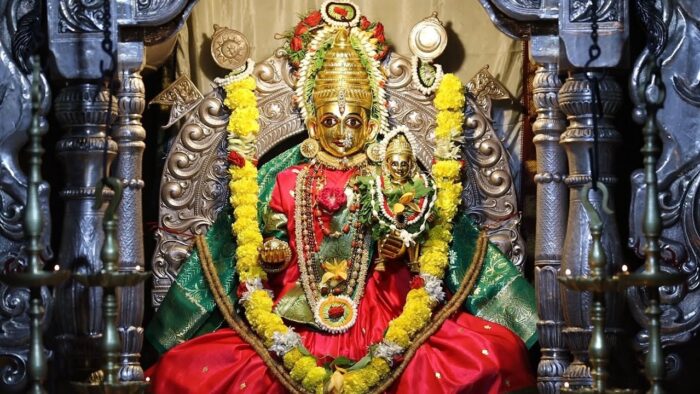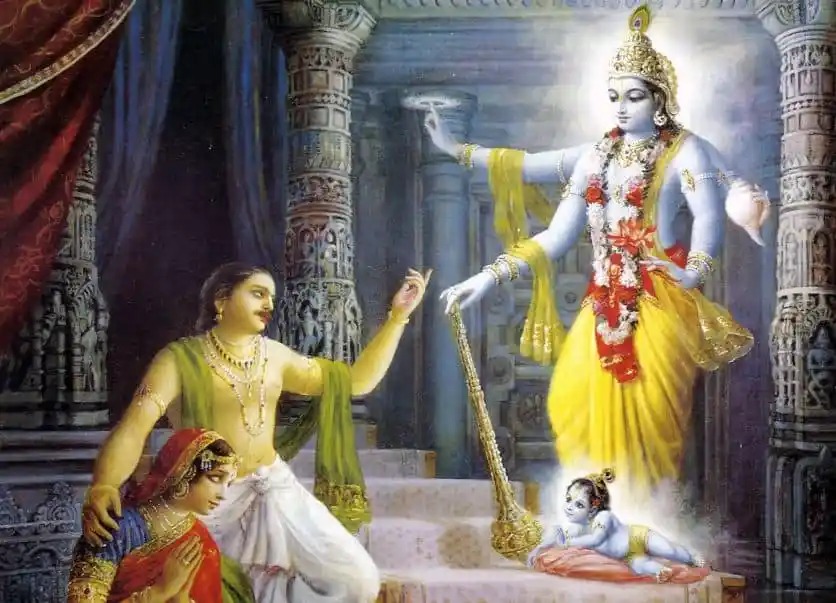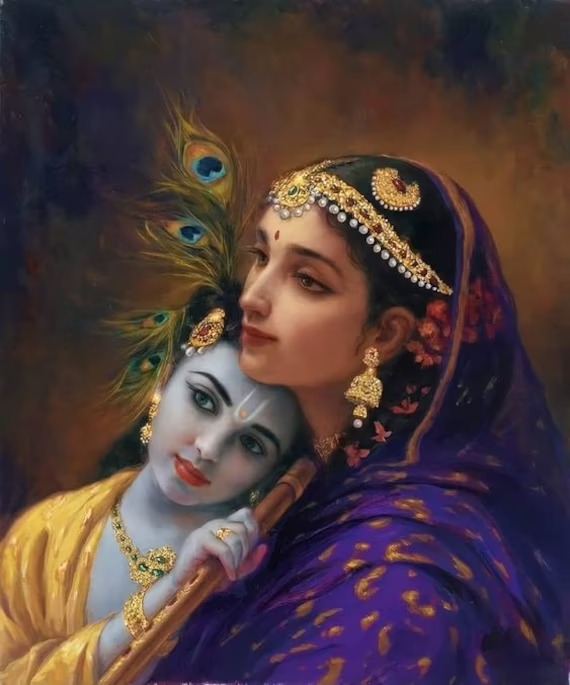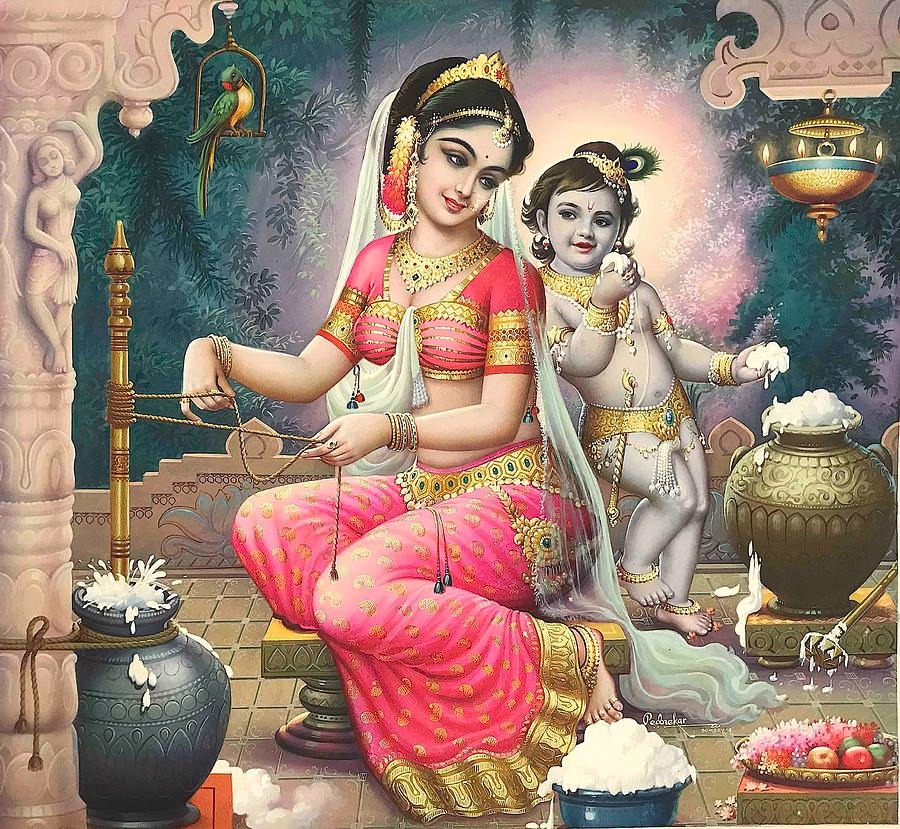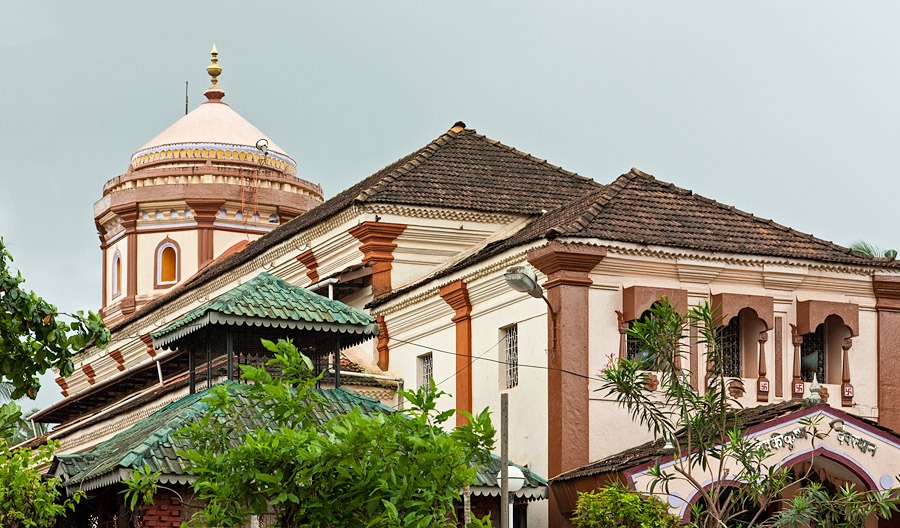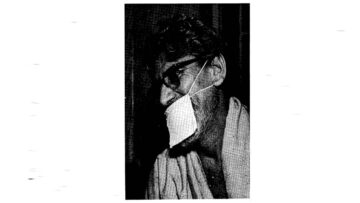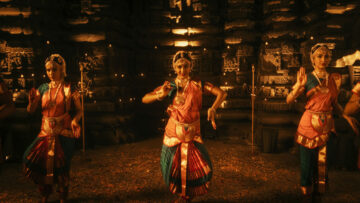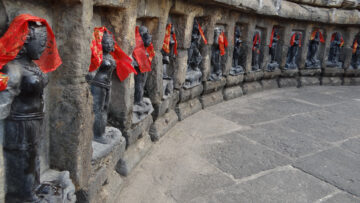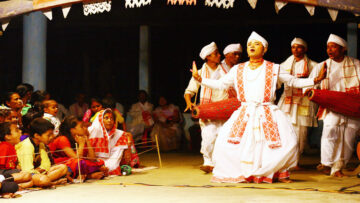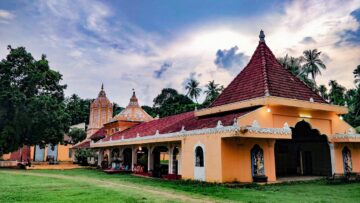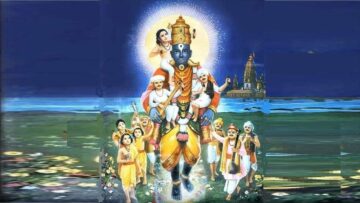“nāsti mātṛsamā chāyā nāsti mātṛsamā gatiḥ
nāsti mātṛsamaṃ trāṇaṃ nāsti mātṛsamā prapā”
There is no shadow, no shelter, no protector like a mother.
There is no life giver in this world like a mother.
Mother has been extolled as a God form in several places in the puranas. As a symbol of life, motherhood is celebrated as it represents both creation and divinity. In Hinduism, The Divine mother is associated with Shakti, the active force and power. Shakti is also regarded as the feminine form of the Supreme God. She manifests in all things, and she mediates between the divinity of nature as well as the individual human personality. She is the link between creation in the universe and the magnificence of the Supreme too. She embodies deep love and kindness but can also use her fiercely protective qualities for the material and spiritual growth of every being. She is considered as the soul and inner beauty of all that is created. Mothers in the puranas are special women who have that unique character and strength who display exceptional courage and love in the best and worst of situations. In India, a mother is often equated to God, and this principle has been ingrained in our culture.
In Hinduism, there are ancient texts and writings on the roles that mothers play in their families. Some mothers have been depicted as having tender-hearted characters, while others have been written about as strong-willed and resilient. However, most of them have been known to have made sacrifices for their children and families. Some mothers that come to our mind are Shakti–the powerful mother, Parvathi – the creative mother, Sita – the brave mother, Kausalya – the victimized mother, Shakuntala – the single mother, Kunti – the strong-willed mother, etc. These mothers are inimitable and unparalleled as their love for their child is above everything else, and are admired, cherished, and revered as God (“The Heroic Mothers in Hindu Folklores – Rgyan,” 2018).
Foster mothers have also had significant roles in the puranas and our traditions. The bond between a foster mother and her child is the same even though she is not the child’s biological parent. An immediate example that we can think of is that of Yashodha – Krishna being the biological son of Devaki is brought up by Yashodha. Most of the poets as well as composers through their songs have brought us the image of Yashodha – Krishna vividly. Kunti, from the Mahabharata epic – Nakula and Sahadeva, sons of Madri, were brought up by Kunti as her own children. Radha – Karna is raised by her to be just and loyal. Karna’s love for his mother grows stronger when Krishna reveals to him the harsh truth of his birth (“Mythology’s Foster Mothers | Amar Chitra Katha,” 2020).
Devaki
Devaki’s character is that of an ideal mother who sacrificed her motherly affection for her duty. She was the daughter of Devaka, younger brother of Ugrasena, the King of Mathura. Devaki was married to Vasudeva, the son of Yadava King Shurasena. Devaki is said to have been an incarnation of Aditi, who in her previous birth was Prishi. Aditi and Diti were both daughters of King Daksha. Indra, the God of rain, was Aditi’s son. Diti nursed jealousy towards Aditi and her son Indra. She wanted a son more powerful than Indra, but her unborn child was destroyed by Indra and Aditi. In a moment of anger, Diti cursed Aditi to be born on earth in her next life and that all her children would be killed in front of her without her being able to do anything about it. Hence, she was born as Devaki (“Krishnabhumi » Devaki’s Story (I),” 2019).
(Figure 1: Credit: Sanatanlok – Krishna displays himself as an ordinary child on Devaki’s insistence)
Both Devaki and her husband Vasudeva were imprisoned by Kamsa, her evil brother, as it was predicted that Kamsa will be killed by Devaki’s eighth child. By the curse of her previous birth, her six sons Kirttimat, Sushena, Udayin, Bhadrasena, Rijudasa and Bhadradeha were all killed by Kamsa. During her seventh pregnancy, while Devaki was carrying Balarama in her womb, by the Divine grace the fetus was transferred to Rohini’s (Vasudeva’s other wife) womb and Balarama was born. Devaki gave birth to her eighth child in secrecy to let him enlighten mankind. Krishna’s jananam, Krishna’s birth story, is vividly narrated in the Bhagavatham. A related excerpt in Sanskrit is as follows:
“Tamadbhutham, Balakamambhujesksanam
Chathurbhujam shankhagadaayudayudham I
Srivatsalaksam galasobhi kausthubham
Pitambharam Sandra payodasaubhagam II
Maharhavaidurya kiritakundala tvisha
Parishvaktasahasrakuntalam I
Uddama kanchayangada kankanaadibhi
Virochamaana Vasudeva aikhsata II”
The verse can be roughly translated to: Vasudeva and Devaki seeing Krishna in his divine form – saw his lotus eyes and four arms holding Shankha, Chakra, Srivatsa mark, Srilakshmi on his chest and glowing Kausthubha diamond in his neck, Pitambharam, Kireeta, Kundalam and Kankana on his wrist. Vasudeva and Devaki in expressing their fear of Kamsa, prayed to him to take the form of child with only two arms. He obeys Devaki, his mother immediately and becomes an ordinary child – Devaki-Nandana.
(Figure 2: Credit: Etsy – Yashodhanandan Krishna)
Like Devaki-Nandana, names such as Devaki-Krishna, Yashodha-Krishna, Gopalakrishna, Radha-Krishna, Navaneethachora-Krishna, Gopi-Krishna, Kalinganardhana-Krishna, and Govardhana-Krishna are used throughout his life. Krishna, after being born to Devaki, was brought up by Yashoda and Nanda at Gokul. Krishna was brought up in a simple manner in their family as cowherds, but with great love and affection.
Though Devaki was Krishna’s natural mother she did not get much attention from poets or composers as compared to Yashodha, Yashodha and Krishna are depicted in many stories and songs, and a lot of religious texts focus on Krishna’s adoptive life. Yashodha and Devaki had equally important roles as mothers to Krishna. Devaki is portrayed as the feminine power of being a mother, with her sorrows of losing her six children and her joy at the birth of Krishna.
Alwars
Alwars (meaning ones who are immersed) were poet saints of South India who dived deep into countless attributes of God. The devotional outpourings of Alwars echo their bhakti and in their elation, they have composed many songs known as pasurams. The twelve Alwars were supreme devotees of Vishnu during 5th to 10th centuries. The religious works of these saints, poems of love and devotion were compiled as Nalayira Divya Prabhandams in Tamizh (“The Naalaayira Divya Prabandham,” 1994).
(Figure 3: Credit: Pixels – Navaneethachora-Krishna enjoying the butterballs churned out by mother Yashodha)
One of the Alwars, Periyaazhavar, imagines himself in Yashodha’s position. His verses celebrate Krishna’s infancy and childhood that are dedicated to combing Krishna’s hair to feeding him. Each stage is described in detail. Yashoda is blessed to witness his growing years. It is the Yashodha-Krishna relationship that gives rise to different portrayals of His growing up through songs, stories of the eternal mother and child.
Kulashekhera Alwar
Kulasekhara Alwar (9th century) was the seventh of the twelve Alwar saints. He was a king of the Chera royal family and was a great devotee of Lord Vishnu. He later gave up the reigns of kingdom to devote himself completely to Lord Vishnu. Kulasekhara Alwar is the author of ‘Perumal Thirumozhi’ in Tamizh and ‘Mukundamala’ in Sanskrit. His poems (pasurams) are devotional and dedicated to Lord Krishna and Lord Rama where he identifies himself in several roles in the events of their lives. His devotion was so intense that he identifies with Devaki, the mother of Lord Krishna, in his pasurams. In his contribution to Divya Prabhandam, namely ‘Perumal Thirumozhi’, he has composed a garland of Tamizh verses depicting how Devaki laments being separated from child Krishna. His eleven stanzas are dedicated to the ‘The lament of Devaki’ and they express Devaki’s grief in being separated from her child. The sadness of Devaki has been described as an expression of heartfelt sorrow over her lost good fortune and she is saluted as the ‘Dhaiva Devaki’ i.e., Divine Devaki. Kulasekhara Alwar puts himself in the place of Devaki and wrote about her as she had never enjoyed Krishna’s childhood.
The 11 pasurams of Kulasekhara Alwar’s Perumal Thirumozhi -The Lament of Devaki are as follows:
- I gave birth to you after carrying you in my womb. I am not as fortunate as Yashodha. She must have sung a lullaby to you –
The lullaby in Tamil is as follows:
“Alai neel karumbu annavan thalo,
Ambuya thadanganninan thalo,
Velai neer nirattannavan thalo,
Ela var kuzhal en mahan thalo
Enru enru unnai en Vayidal niraya
Tal olittidum thriu vinai illa tayaril
Kadaiyayina thaye”
It can be roughly translated to English as follows:
Thaalo – is a word used in ending each line of the lullaby
My baby as sweet as sugarcane thaalo,
My baby with eyes like the lotus thalo,
My blue-coloured baby like the deep sea thaalo,
My baby who has the gait like a baby elephant thaalo,
My baby with fragrant curly tresses thaalo.
I am unable to sing all these lullabies to my satisfaction for you, what an unlucky mother I am!
- Not only did I miss singing the lullabies for you, but I did not get the joy of seeing you play in the cradle. As a child you would be gazing at the toys like small parrot hung above your cradle. I did not have an opportunity to see your gaze on those toys nor did I get to beautify your lotus like eyes with anjana. I did not see the beauty of you sleeping with your tiny legs folded or beautiful fingers folded within your palm. Alas I am so unlucky not to be able to experience the joy of all this.
- This verse has Devaki crying over her husband’s misfortune.
Baby Krishna you are the darling of all in Gokul. If anyone in Gokul asks you ‘Where is your father? Not only do your eyes point at Nandagopa but so do your little fingers to the delight of everyone. Nandagopa is fortunate because he is the husband of Yashodha. Vasudeva is not because he is the husband of me! Should this joy not have been Vasudeva’s right? He is Krishna’s father’ cries Devaki in anguish.
- When you were a mere child, with face like the full moon, your world is your mother alone, you thought Yashodha is your mother and loved her. I could not fondle your moon like face, lotus like eyes, your chest, strong hands, and thick dark hair that curls over your neck. Even before you could realize that I was your mother I lost you! That loss pains me that I did not enjoy your childhood days. I am an unfortunate woman!
- When you come forward with faltering steps to kiss, your forehead ornament (Chuti) would have tilted, and it seemed to enhance your beauty but only I could not see. I lost the pleasure of looking at your face and say, ‘oh this is my child resembling his father’. I missed hearing those sweet words which as a child you uttered. I missed seeing you put your little finger into your mouth with butter and your saliva on it. I lost everything, I am born to lose all pleasures, and Yashodha is born to gain everything. She must be the divine mother; I am an unfortunate woman!
- I missed the joy of watching you take faltering steps, swirling the dust from the floor when you play. I was not hugged by you after you played in the mud for a long time. With your slender fingers you would have stuffed the half-chewed food that you eat, into my mouth! Why did my mother give birth to an unfortunate mother like me?
- I miss the sight of you suckling milk while smiling radiantly at me! I never had the experience of breastfeeding you. I am unfortunate indeed. I never had these pleasures with you.
- Yashodha must be experiencing the boundless joy of watching your hands plunge into the pots of butter and enjoying it. Yashodha tries to catch you and threatens to tie you up with a rope, she watches your feigned fearful expressions when you are caught. At that time the corner of your mouth is smeared with curd that you had helped yourself to. You open your beautiful mouth to beg Yashodha not to tie you down. All these sights were enjoyed by the fortunate Yashodha, and she reached the height of limitless bliss of anubhavam. All this I can only imagine whereas Yashodha is fortunate enough to enjoy the youthful pranks (Bala Kreeda) of Krishna my son.
- Yashodha was able to witness all the astonishing feats and leelas you performed, like lifting of the Govardhan Mountain, dancing with the Gopis, and dancing with your dainty feet on hood of Kaliya. You showed all this to Yashodha alone, not to me. All this perhaps I will be able to witness in person very soon if you have mercy on me as Yashodha did.
- You separated Putana’s life from her body by suckling her poisonous milk. You escaped being killed by her but gave her salvation at once. Am I such an unfortunate creature to miss all these boons? I am alive only in the hope that I will see you someday. I am glad that you have a good mother in Yashodha!
- Devaki’s lamentations like these showing a mother’s natural longing and expectation. She only wanted her child in her arms – Kulashekhara Alwar has composed these garlands of Tamizh verses depicting how Devaki laments after being separated from Krishna and calls her as ‘Divine Devaki’(Acharya, 2018)
From the above verses a sense of sadness in Devaki is perceived in singing her lullaby to an empty cradle. A lullaby for a child who is the supreme Avatar who is present everywhere except in the arms of his mother Devaki, and her imagination of the pleasures of motherhood enjoyed by Yashodha.
Devaki’s Wish Fulfilled
The wish of Devaki was fulfilled after many years when she came in search of Krishna coming to know that his life was in danger even after killing Kamsa. Jarasandh and another demon king Kalayavana were searching for Krishna. Krishna travels south and comes to the forests of Gomantak – Gomanchal Parvat (Goa). Here Krishna goes to Choodamani (present day Chodon/chorao) to a cave where King Muchukunda was in deep sleep. King Muchukunda has a boon that anyone who disturbs him would be reduced to ashes. Krishna puts his peethambharam (yellow cloth) over King Muchukunda without disturbing him and sits in the corner of the cave. Kalayavana follows Krishna throughout his journey and enters the cave. Seeing the peethambharam he mistakes for Krishna and attacks him and is reduced to ashes by King Muchukunda.
(Figure 4: Credit: Travelpeopleindia – Devaki-Krishna Temple at Marcel, Goa)
Devaki who is following Kalayavana, meets Krishna after Kalayavana is killed but not able to recognize him as he is no more a Balakrishna. Krishna takes the form of Balakrishna for Devaki to recognize him and sits on her lap allowing her to feed him.
This image of Devaki with Balakrishna on her lap is being worshipped in the form of an idol at Sri Devaki Krishna temple located at Marcel, Goa. This the only temple dedicated to Devaki Krishna in India. The utsava murthy of Lord Krishna is made of the stem of tulsi tree. The ‘Chikalkalo’ or gaullankaal (male devotees rolling in muddy waters) which is celebrated here is believed to be an enactment of mischief of Lord Krishna as a child (Shri Samsthan Devaki Krishna Ravalnath, 2022).
(Figure 5: Credit: Pinterest – Sri Devaki Krishna Temple Moola Vigraha)
Temples assume great importance in Hinduism as they are not only place of worship but also culturally significant. The divine energy in the temple can be attributed to the deities. Devaki is depicted as the feminine power of being a mother who had the courage to sacrifice her babies and give her eighth child to enlighten mankind. Her character is that of an ideal mother who sacrificed her motherly affection for duty.
The Hindu culture elevates motherhood as divine principle, with their empowering and protective nature. Even nature is considered as a mother who nourishes, preserves, protects, and destroys. Mula Prakriti (Root of Nature) gives birth to all life forms and sustains and nourishes and re-absorbs all life forms back into herself. As a mother she creates a physical body in her womb giving rise to worldly relations and bondages. The constant idea is that mother is divine for all and an object of great love. Beyond providing for our material needs, she is considered our first guru as she strives to nurture and cultivate our spiritual developments. Similarly, Devaki was also a strong woman, and her presence can be felt in every Indian mother.
References
Acharya, P. S. (2018). Azhwargal Varalaaru. Alliance Publishers.
Krishnabhumi » Devaki’s Story (I). (2019). Retrieved April 16, 2022, from https://krishnabhumi.in/blog/devakis-story-i/
Mythology’s Foster Mothers | Amar Chitra Katha. (2020). Retrieved April 16, 2022, from https://www.amarchitrakatha.com/mythologies/mythologys-foster-mothers/
Shri Samsthan Devaki Krishna Ravalnath. (2022). Marcel, Goa.
The Heroic Mothers in Hindu Folklores – Rgyan. (2018). Retrieved April 16, 2022, from https://rgyan.com/blogs/heroic-mothers-in-hindu-folklores/
The Naalaayira Divya Prabandham. (1994). Retrieved April 16, 2022, from https://ramanuja.org/sv/prabandham/index.html
Feature Image Credit : youtube.com
Watch video presentation of the above paper here:
Disclaimer: The opinions expressed in this article belong to the author. Indic Today is neither responsible nor liable for the accuracy, completeness, suitability, or validity of any information in the article.

